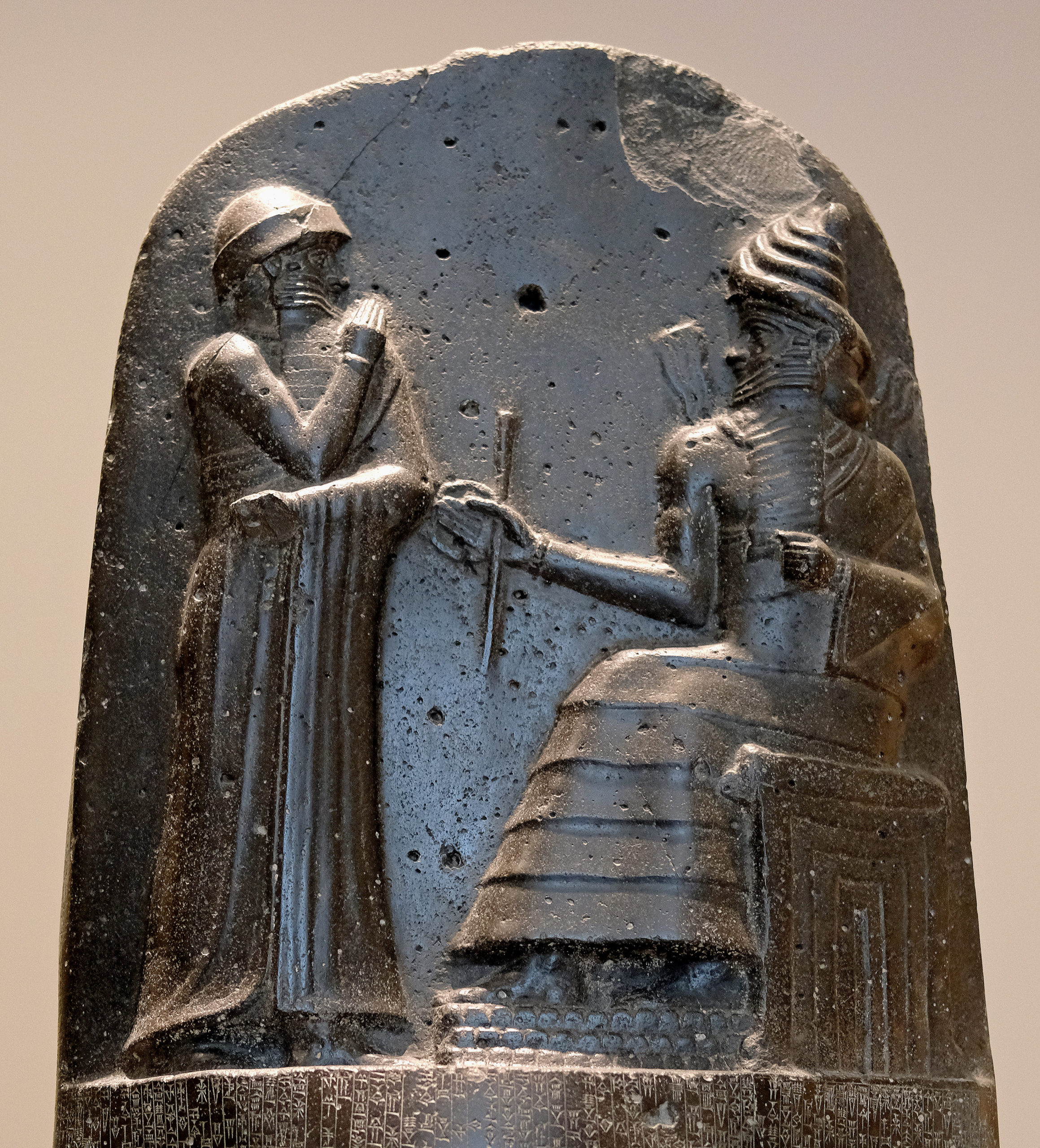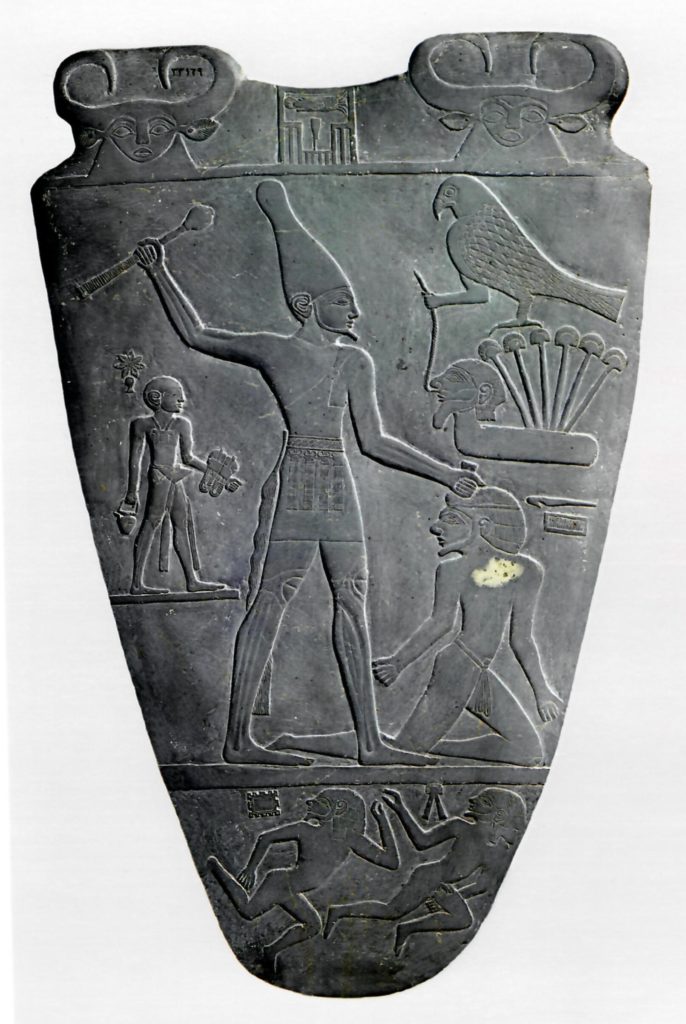
The Stranger in the Hebrew Bible
Ryan Bonfiglio
Code of Hammurabii via Wikimedia Commons (CC BY 3.0).
In a March 5, 2024 headline, the NY Times named immigration as “the biggest issue on Americans’ minds” today. Be that as it may, America is not the first (and surely not the last) society to wrestle with legal and ethical questions related to how one is to treat neighbors who came from other countries. In fact, such questions are front and center in the Hebrew Bible, or Old Testament (OT), especially in legal materials that deal with the treatment of the gēr.
Often translated “stranger” or “alien,” the Hebrew term gēr refers to one who is forced to leave his nation of origin, often due to famine, pestilence, or military invasion, to live somewhere else.1The two other primary terms used for non-Israelites in the OT are gôy (“nation”) and nokrî (“foreigner”). Unlike gēr, these two terms are typically used in reference to non-Israelites who reside outside of the land of Israel. Disconnected from networks of kinship support and often unable to possess land, the gēr almost inevitably faced a situation of socio-economic vulnerability and marginalization. In ancient Israel, how to address the gēr was not a matter of abstract theological reflection. In the biblical period, there was never a moment in which the land of Israel was exclusively occupied by the people of Israel. From the time of the conquest (ca. 1200 BCE) until the Roman period, various people groups—Amorites, Ammonites, Philistines, Moabites, Assyrians, Babylonians, Persians, and so forth—lived among the Israelites. As a result, most Israelites would have had real, everyday encounters with the gēr.
While the OT’s overall commentary on the gēr is complex and at times conflicted, its various legal materials offer a relatively consistent set of commandments and statutes aimed at protecting the stranger and providing for their wellbeing. The legal materials in question can be found in each of the major law collections in the OT: the Covenant Code (Exodus 20:22-23:19), the Deuteronomic Code (Deuteronomy 12-26), and the Holiness Code (Leviticus 17-26), as well as a smattering of other laws in the Pentateuch.2No mention of the gēr is found in the Ten Commandments (Exodus 20:2-17; Deuteronomy 5:6-21). However, this is partly due to the concise grammatical formulation of the neighbor-focused commandments. The goal of these “second tablet” commandments is to create a flourishing community which would have included both Israelite and gēr alike. Here, I want to explore the broader contours of how the gēr are treated within ancient Israel’s legal tradition, with an eye towards potential—even if only partial—insights for our context today.

The starting point for the law’s approach to the stranger can be summed up as “do no harm.” This is evident in Exodus 22:21, which states: “You shall not wrong or oppress a resident alien, for you were aliens in the land of Egypt.” What is striking here is the motivation clause, “for you were aliens in the land of Egypt.” Being slaves in the land of Egypt for some 400 years, the Israelites knew all too well what it was like to be gēr in a brutal and dehumanizing system. Having been freed from the yoke of Pharaoh, Israel is not to impose Pharaoh-like conditions on the gēr in their midst. This point is driven home by the fact the word for “oppress” (lḥṣ) in this verse appears also in Exodus 3:9, where it describes how Pharaoh treated the Israelites.
The logic of the motivation clause extends beyond the particular generation of Israelites who had been enslaved in Egypt. All future Israelites—and indeed, all humans—will experience estrangement, whether in families, with loved ones or friends, in jobs, in communities, or even in places of worship. The recognition of our own experiences of estrangement should fuel and sustain a commitment to do no harm when it comes to our interaction with strangers, whether immigrants/refugees or otherwise. Exodus 22:21 invites us to end the cycle of hurt people hurting people.
Beyond doing no harm to the gēr, Israel’s legal tradition stipulates the obligation to also actively provide for the stranger in need. A compelling case is found in Leviticus 23:22, in which we find the law of gleaning. This law requires that a certain portion of one’s property (the rabbi’s said it was 1/60th of the parcel) should be left unharvested. This portion, as well as the grapes and olives that accidentally dropped to the ground during the ingathering, should be left for the poor and stranger. What is imagined here is something of a social welfare system insofar as the law of gleaning attempts to meet the basic needs of members of the community. However, this practice is not a hand-out like a food pantry or soup kitchen. Rather, the law pictures the stranger coming onto the land and doing the work of harvesting side-by-side with the landowner. Agency and dignity are prioritized.
Another way of actively providing for the gēr is described in Deuteronomy 14:28-29. This law stipulates that once every three years, the tithe one owes to the temple in Jerusalem should instead be given to the local community so that “the resident aliens (gēr), the orphans, and the widows in your towns may come and eat their fill.” In this context, the tithe owed to the temple would have come in the form of crops or livestock from one’s field. Thus, the tithe would have been immediately useful for sustaining the needs of food insecure individuals. Here, a religious obligation is regularly set aside to support the needs of the community, including the gēr. Or, perhaps more to the point, Deuteronomy 14 defines caring for the physical needs of the local community, including the gēr, as a religious obligation on par with giving to the temple.
Another striking feature of Deuteronomy 14 is the grouping of the gēr alongside the (presumably Israelite) orphan and widow. This triad of orphan-widow-stranger is found repeatedly throughout the OT, but is generally absent in other ancient Near Eastern legal traditions. Non-biblical law codes such as the Code of Hammurabi from the 18th c. BCE place great emphasis on protecting the orphan and the widow, but never include the gēr in such protections.3The only known exception is found in a command of a Hittite king to protect the stranger within his land. Yet, even here the stranger is not explicitly grouped with the orphan and widow. The unique innovation of the Israelite legal tradition is thus not so much its insistence on justice, but rather its belief that kinship ties are not to be seen as prerequisites when it comes to protecting the most vulnerable members of society. Under Israelite law, marginalized and needy individuals are to be cared for regardless of their nation of origins.
A similar dynamic plays out in Deuteronomy 1:16, which states: “I charged your judges at that time: ‘Give the members of your community a fair hearing, and judge rightly between one person and another, whether citizen or resident alien.’” Even more explicitly than the texts discussed above, Deuteronomy 1:16 underscores that in the context of the court proceedings, the gēr and the Israelite should have equal status and footing. There are not to be two different sets of laws, or even one law applied differently. Whether or not this was always followed remains to be seen. Indeed, the very presence of this statute in the canon might well suggest that it wasn’t.
A final text is worth noting. In Leviticus 19, we find the famous words “you shall love your neighbor as yourself” (v. 18), a commandment which Jesus later refers to as being the second greatest in the law (Matthew 22:39). The interpretive crux of this verse is whether the obligation to love one’s neighbor only applies to one’s Israelite neighbor. The author of Leviticus 19 seems to anticipate this very question, for just a few verses later we read: “The alien who resides with you shall be to you as the citizen among you; you shall love the alien as yourself” (v. 34).
This text is not merely transferring the obligation to love one’s Israelite neighbor to one’s non-Israelite neighbor. Rather, it is calling for something more radical: a redefinition of stranger as fellow citizen and neighbor.
As such Leviticus 19 reaches beyond the notion of generosity or even hospitality and calls us to question the assumptions, narratives, and perspectives that lead to the very creation of the label “stranger” in the first place.
When relating ancient Israel’s legal tradition to contemporary matters, it is rarely ever the case that we can say, “The Bible says it, that settles it!” This is as true for the situation with the gēr as it is for laws about not wearing garments made of two kinds of fibers (Leviticus 19:19) or the use of capital punishment for those who work on the Sabbath (Exodus 35:2). The enormous historical and cultural gap that exists between ancient Israel and contemporary society calls for a more sophisticated hermeneutic. Such an approach should attempt to illuminate how the theological and ethical principles beneath the ancient practice prescribed by a given law can best be embodied and expressed in modern practices. OT law on the gēr doesn’t give us an immigration policy and it doesn’t narrowly affirm a certain political party’s platform. It instead gives those of us who look to the OT as a sacred text a conceptual framework for discussing how we might approach immigrants and refugees in ways that are just, compassionate, and generous. ♦

Dr. Ryan Bonfiglio serves at Emory University’s Candler School of Theology as an Associate Professor in the Practice of Old Testament. He also is the Executive Director of The Candler Foundry, an initiative that seeks to make seminary-level learning accessible and engaging for the broader public and beyond Candler’s degree programs.
Recommended Citation
Bonfiglio, Ryan. “The Stranger in the Hebrew Bible.” Canopy Forum, April 29, 2024. https://canopyforum.org/2024/04/29/the-stranger-in-the-hebrew-bible/.

Learn more about The Candler Foundry:
Recent Posts










